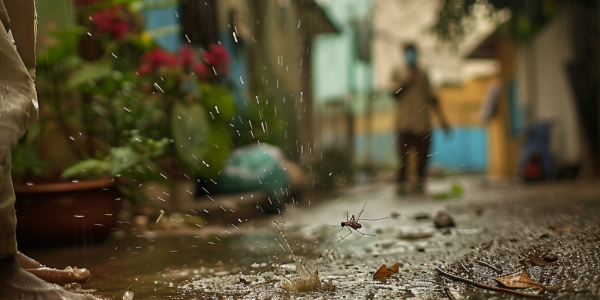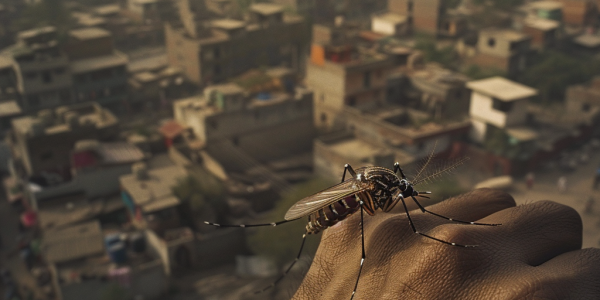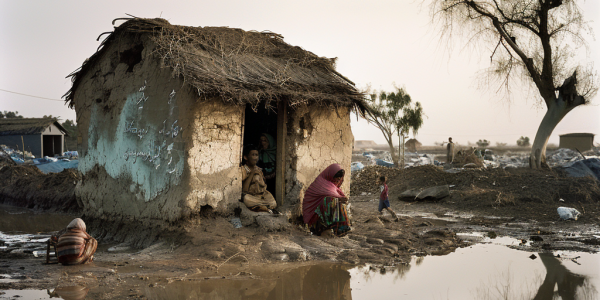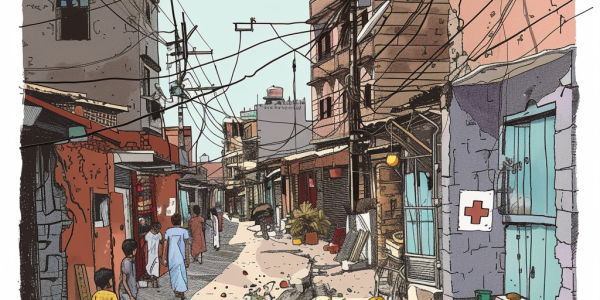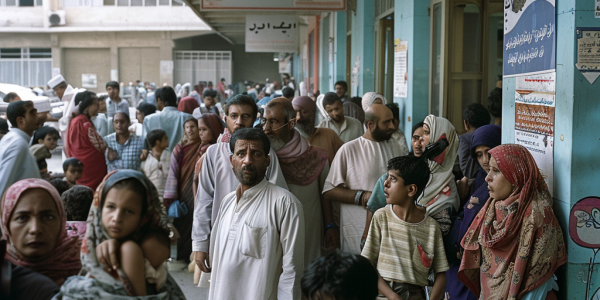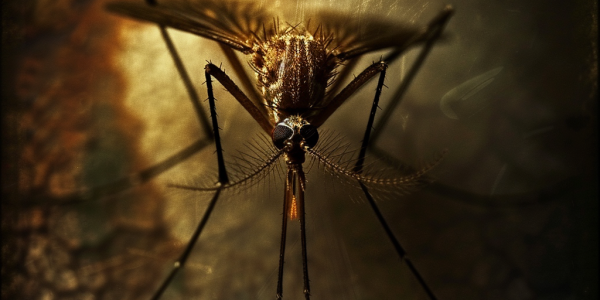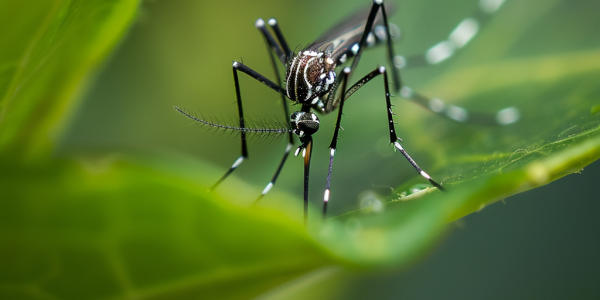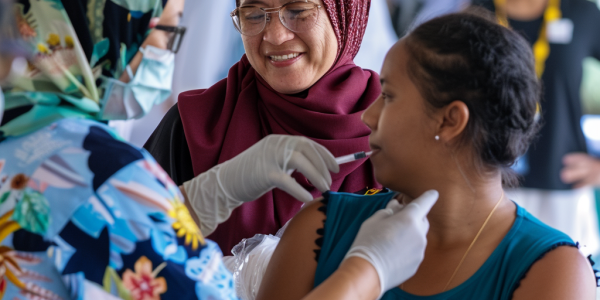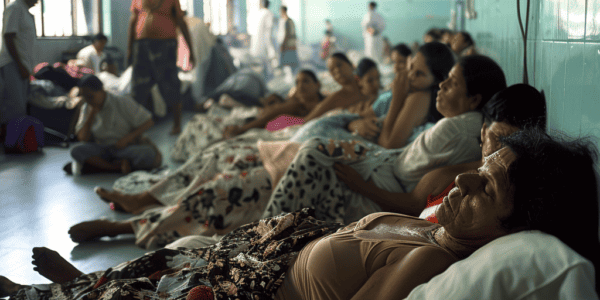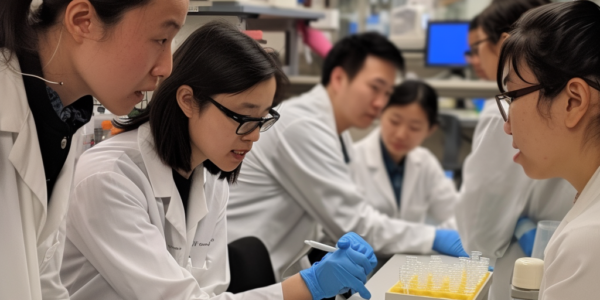Dengue Cases Surge in Tamil Nadu Amid Heavy Rainfall
Heavy rainfall in Tamil Nadu has led to a significant rise in dengue fever cases, with over 23,000 reported in 2024. Health officials urge the public to take preventive measures against mosquito breeding and seek medical attention promptly to combat the outbreak.
Chikungunya Outbreaks Surge Globally, Costing $50 Billion in Health Impact
Chikungunya, a mosquito-borne viral disease, is on the rise globally, with nearly 15 million infections reported in Latin America and the Caribbean alone. Recent research highlights the economic burden of $50 billion in healthcare costs and the urgent need for improved public health interventions to combat this debilitating disease. Factors like globalization, urbanization, and climate change contribute to the spread of chikungunya, affecting millions and leading to long-term health complications.
Pakistan’s Sindh Province Faces Ongoing Health Crisis After Devastating Floods
In the wake of the devastating 2022 floods, Pakistan’s Sindh province faces a severe public health crisis with a surge in waterborne diseases like malaria and cholera. Families, especially in rural areas like Sujawal, struggle with limited access to clean water and healthcare. Health officials warn of a potential emergency as the situation worsens, highlighting the urgent need for improved sanitation and healthcare resources to protect vulnerable communities.
Dengue Cases Surge Past 4,000 in Delhi Amid Rising Vector-Borne Diseases
The Municipal Corporation of Delhi (MCD) reports over 4,000 dengue cases in 2024, with a significant spike in October. The rise in vector-borne diseases, including malaria and chikungunya, prompts officials to urge residents to eliminate mosquito breeding sites. With three fatalities reported this year, public health measures are critical as temperatures drop. Stay informed and proactive to protect against these health threats in Delhi.
Karachi Hospitals Overwhelmed by Chikungunya Outbreak
Karachi hospitals are overwhelmed by a surge in chikungunya virus cases, with 500 to 750 suspected patients reported daily. This mosquito-borne illness poses severe health risks, especially to vulnerable populations. Health officials are urging public awareness and improved testing to combat the outbreak effectively.
Bavarian Nordic Submits Chikungunya Vaccine for Approval in Europe
Bavarian Nordic has submitted its chikungunya vaccine for approval in Europe, following a similar application in the US. This strategic move aims to combat the spread of the mosquito-borne viral disease and improve global health initiatives. Stay tuned for updates on the potential approval in the first half of 2025.
Rise of Invasive Mosquito Species Linked to Dengue Fever Cases in Europe
The rise in dengue fever cases in Europe is linked to the presence of the invasive tiger mosquito, facilitated by climate change. Authorities warn of the risk of outbreaks and advise preventive measures like eliminating stagnant water and using mosquito repellent. With the spread of diseases like dengue fever and West Nile virus, it is crucial for individuals to protect against mosquito bites in affected regions.
EMA Recommends Valneva’s Chikungunya Vaccine for Use in Europe
The European Medicines Agency (EMA) has recommended Valneva’s single-dose chikungunya vaccine, Ixchiq, as the first preventive shot against the disease in Europe. With no approved drugs for chikungunya, the vaccine’s approval could be crucial in combating its spread in the region, especially with the increasing risks associated with climate change and global travel.
Dengue Fever Spreading Across South America
Dengue fever is spreading rapidly in South America, with Brazil alone recording over 1.5 million cases and 390 deaths this year. The disease is overwhelming hospitals and prompting fumigation efforts in major cities. Epidemiologists attribute the rise in cases to global temperature increases, warning that the crisis could spread to the US and Europe as well.
UMass Amherst Researcher Leading Project to Determine Mosquito Age for Improved Pesticide Strategies and Disease Control
UMass Amherst researcher, Lili He, leads a project to determine the age of mosquitoes to improve pesticide strategies and combat mosquito-borne diseases. The $1.71 million NIH-funded project aims to develop a novel approach to age-grade mosquitoes, addressing the current lack of accurate and cost-effective methods. The multidisciplinary team includes experts in analytical development, mosquito biology, biochemistry, field studies, and machine learning modeling, with the ultimate goal of developing a reliable method for age-grading mosquitoes to assess disease risk and facilitate more effective mosquito-control strategies.

